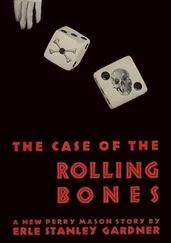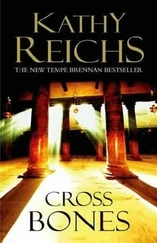SUNDAY AT THE CROSS BONES
A Novel

Cover
Title Page SUNDAY AT THE CROSS BONES A Novel
Dedication DEDICATION To my darling Sophie – an inspiration, always
Epigraph EPIGRAPH For years I have been known as the Prostitutes’ Padre – to me the proudest title that a true priest of Christ can hold. I believe with all my soul that if He were born again in London in the present day, He would be found constantly walking in Piccadilly. – Reverend Harold Davidson ‘The Working Girl’s Life’ Monday in the nursery ward, Tuesday in the schoolyard, Wednesday painting lipstick on, Thursday going with George and John, Friday at the Crown with Billy, Saturday weeping down the ’Dilly, Where will she rest from her tears and moans? Sunday at the Cross Bones – Old rhyme, c. 1880 Well go ahead and call the cops – You don’t meet nice girls in coffee shops – Tom Waits
Chapter 1
Chapter 2
Chapter 3
Chapter 4
Chapter 5
Chapter 6
Chapter 7
Chapter 8
Chapter 9
Chapter 10
Chapter 11
Chapter 12
Chapter 13
Chapter 14
Chapter 15
Chapter 16
Chapter 17
Chapter 18
Chapter 19
Chapter 20
Afterword
Author’s Note
Acknowledgements
About the Author
Also by the Author
Copyright
About the Publisher
To my darling Sophie – an inspiration, always
For years I have been known as the Prostitutes’ Padre – to me the proudest title that a true priest of Christ can hold. I believe with all my soul that if He were born again in London in the present day, He would be found constantly walking in Piccadilly.
– Reverend Harold Davidson
‘The Working Girl’s Life’
Monday in the nursery ward,
Tuesday in the schoolyard,
Wednesday painting lipstick on,
Thursday going with George and John,
Friday at the Crown with Billy,
Saturday weeping down the ’Dilly,
Where will she rest from her tears and moans?
Sunday at the Cross Bones
– Old rhyme, c. 1880
Well go ahead and call the cops –
You don’t meet nice girls in coffee shops
– Tom Waits
Journals of Harold Davidson
Central Beach, Blackpool 6 September 1932
Some child of Satan has deposited a quantity of candyfloss in my hair. I suspect it may have been the gormless boy in the Edwardian sailor suit, four or five at most, whose mother lifted him up in her meaty arms to be kissed by the famous rector. A sulky, unbiddable young man with a face that Raphael himself would have found it a burden to render adorable, he performed his task with reluctance, turning his putty cheek away so that my lips found only his ear, and leaving me the inestimable gift of sticky spun sugar clamped to my snow-white locks. By the time I realised the damage that was done, she and he were long gone. I must have greeted a dozen visitors looking like a Lancashire barmaid permed and pink-rinsed for a night on the tiles.
Cramped legs; sticky hair; kissing babies; enduring the sniggers of the ungodly. These are hardly the ideal circumstances of the modern clergyman, no matter how nationwide his renown. But then neither is this barrel in which I sit for the second morning of my ten-day-long stint. I do not say it is uncomfortable. Mr Gannon has kindly provided me with a cushion upon the narrow seat where I perch like a maiden aunt. The structure of the barrel has been cut away to allow me a kind of counter upon which to rest my arms, or to write in this journal, or to sign autographs – that puzzling new phenomenon, as though the inscription of one’s name on an envelope or ticket stub forged a connection of sorts with a complete stranger, who will display it later as proof of his having met me, as though a lion in Chessington Zoo might have volunteered to him a paw-print of brotherhood.
Above my head, raised on a metal stalk, a wooden roof houses a small electric fan to circulate the late-summer air and disperse the cigar fumes. ‘We generally disapprove of the exhibits having a smoke, Padre,’ said Mr Gannon with his habitual air of a man supervising an event of vast importance, ‘but we’ll make an exception for you.’
On my left is Mr Gavin Tweedy’s World-Famous Flea Circus, a ludicrous entertainment constructed from a plywood door laid across two steel drums, upon which tiny insects are encouraged to jump over obstacles, walk through hoops, pull tiny carts and dance together to a tinny foxtrot. If Jonathan Swift were to walk by this bonsai extravaganza, what a metaphor he would find for human endeavour: the vanity of display, the pointlessness of striving, the folly of courtship, the puniness of ambition! On my right, a Miss Barbara Cockayne sits in a barrel similar to mine. Her beard is remarkable, an elaborate, flourishing beaver similar to that of Lord Rosebery, or St Jerome as imagined by Rubens. She has a limited repertoire of conversation, contenting herself with growls and oaths and lavatorial remarks; I suppose it must be hard for her to find subjects of chatty inconsequence to share with those who have paid twopence merely to come and gawp at her hairy chin.
I suppose I should be grateful that twopence is also the tariff they pay to come and inspect me, in my snug, brandy-scented wooden casket. It would be a little too cruel if I were paid less than the bearded lady and the waltzing fleas. As to the fee structure enjoyed by my other neighbours here on the strand – the Dog-Faced Man and the Three-Legged Boy of Italy – I am in the dark.
The soft crash of the incoming tide from the Irish Sea can occasionally be heard when the music – that endless, jaunty, soul-deadening jingle-jangle of popular tunes further down the promenade, played apparently on a broken pipe organ – comes to a blissful halt for a moment or two. It fills my heart with sadness, for it reminds me of the waves on the Norfolk strand at Wells-next-the-Sea, where Mimi and I would take the children for Sunday picnics in happier days, the breeze from the salt marshes stinging our nostrils, the gulls flapping and barking over our heads. Those lines from Milton’s ‘Lycidas’ come unbidden into my head:
… the stormy Hebrides
Where thou perhaps under the whelming tide
Visit’st the bottom of the monstrous world.
For there is no doubt that I have found the bottom of the monstrous world here, in Blackpool. I, who have devoted my life to the betterment of others, sit now like Diogenes the philosopher, a man who gave up the luxuries of the material world to find enlightenment, to end his days in a barrel in the Athenian marketplace. Have I found enlightenment? No. Instead, I wrestle with the events of the last two years, picking over the past, looking for the reasons why I find myself here, gazing across a multitude of day trippers, sunburned holidaymakers, squalling children, ignorant matrons perusing their puzzle magazines, scrofulous bank clerks surreptitiously kissing their new girlfriends on the lips as if amazed at their daring. They have come to see me, a line of several hundred scorched and moronic spectators, some way down the devotional scale from my kindly, God-fearing flock at Stiffkey. There, in the pulpit at St John’s, I would survey the expectant faces and know that I was called by the Lord for a purpose. But my purpose here? It is inscrutable. They pay their twopence. They shuffle past. They offer their compliments. (Some, even, their abuse; and one, a generous gout of his saliva.) I thank them, utter some words about the trial, call on their support in my appeal against the bishop, and bless them on their way with a raised hand. What have I, or we, achieved except a hollow exchange between an adventitious ‘celebrity’ (me) and a curious, sympathetic but morally indifferent public?
Читать дальше













